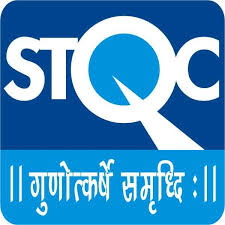The 3rd India-China Cooperation Forum, jointly organized by the China Europe International Business School and the Consulate General of India in Shanghai, was held at CEIBS’ Shanghai campus on October 30, 2012 to commemorate the birthday of Mahatma Gandhi, a day which has been designated by the United Nations as the International Day of Non-Violence.

India’s Ambassador to China Dr. S. Jaishankar was the keynote speaker at the forum. Other speakers at the forum included President and CEO of Guangxi Liugong Machinery Company Mr. Zeng Guang’an, President of Tata China Mr. James Zhan, CEIBS Vice President and Dean John Quelch, Professor of Entrepreneurship S. Ramakrishna Velamuri and Professor of Economics Bala Ramasamy. The forum also welcomed Vice Dean of Fudan University’s Institute of International Affairs Prof. Shen Dingli, Deputy Director of Peking University’s China Center for Economic Research Prof. Yao Yang, Visiting Senior Research Fellow and Head (Partnership and Program) at the Institute of South Asian Studies of National University of Singapore Dr. Amitendu Palit, and CEIBS Visiting Professor and Harvard Business School Ross Graham Walker Professor of Business Administration Krishna Palepu. Throughout the event, they engaged in extensive discussions of the economic and trade relations between the two countries.
China-India Relations
CEIBS Vice President and Dean John Quelch made opening remarks, encouraging those in the audience to continue to strengthen bilateral economic ties between China and India.

Dean Quelch
India’s Ambassador to China Dr. S. Jaishankar then spoke. He reflected that in the past decade, the frequent meetings between Chinese and Indian government leaders have contributed significantly to stabilising bilateral relations. He urged the two countries to continue working together, creating more opportunities for cultural exchanges and promoting the sustainability of a win-win partnership.

India’s Ambassador to China Dr. S. Jaishankar
Prof. Shen Dingli, Vice Dean of Fudan University’s Institute of International Affairs, shared his thoughts on bilateral relations between China and India. He paid tribute to the Indian government’s insightful decision to introduce Chinese as a foreign language subject in Indian primary schools, and he also noted that the two countries should look to the future, resolving their conflicts in a rational manner and joining forces to improve the global diplomatic environment.

Prof. Shen Dingli
Over the past 8 years, the trade volume between China and India has soared, increasing almost 38% annually, Dr. Amitendu Palit pointed out during his speech. He used the concept of 3C (challenges, competition and collaboration) to describe the two countries’ economic development, drawing attention to the similar problems and developmental traits China and India share.
Cross-border investment and business experiences
In his speech, Mr. Zeng Guang’an introduced how his company, Guangxi Liugong Machinery, has developed in India. According to Mr. Zeng, to run a business in India, maintaining good relations with governmental departments is important. Companies should be dedicated to adjusting their operations, management, and corporate culture, in order to better adjust to the Indian business and cultural environment, he said. Mr. James Zhan then spoke about Tata Group’s investments in China. In the past decade, more and more subsidiaries of the Group have come to China, only to find that an inadequate knowledge of the Chinese language and business environment have caused many problems. He suggested that Indian companies trying to establish themselves in China must have competitive products and services, and they must choose an appropriate market segment.
Chinese and Indian Globalization experiences
CEIBS Visiting Professor of Business Administration Krishna Palepu then gave a speech, in which he argued that as companies establish their business in foreign markets, it is crucial that they have clear goals and that they strategise accordingly. Peking University’s Prof. Yao Yang spoke next about Sino-Indian Cooperation in the new global order. He encouraged the two countries to work together within the World Monetary Fund and to propel reformative plans, such as giving more votes to emerging economies and adding more of their representatives to the higher ranks of IMF.
The last part of the forum focused on improving people’s lives through information and communications technologies (ICT). Mr. Teo Chin Seng, Executive Director of iCity Lab at Singapore Management University, discussed the role of public-private partnerships (PPP) in the delivery of e-governance services. At the end of the forum, Mr. Liu Jian, the Vice Chairman of Shanghai Municipal Commission of Economy and Informatization shared some Chinese experiences in e-Governance and smart cities.





